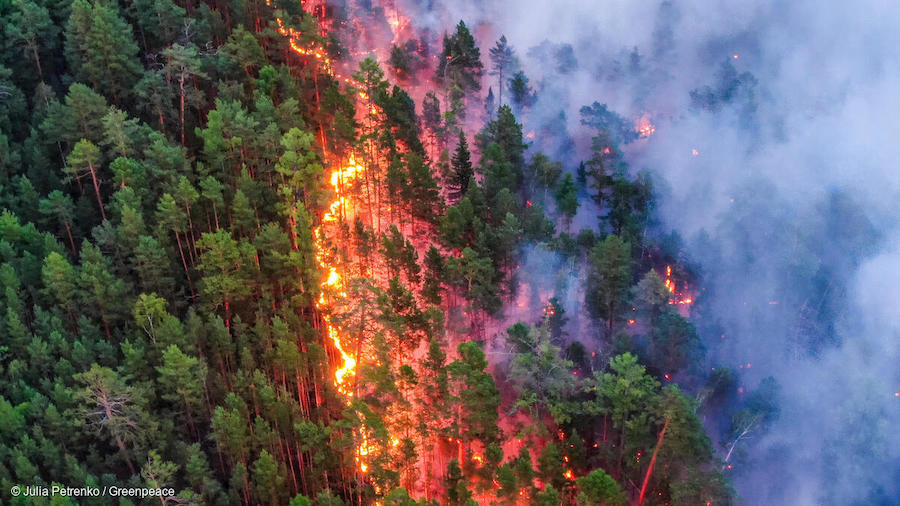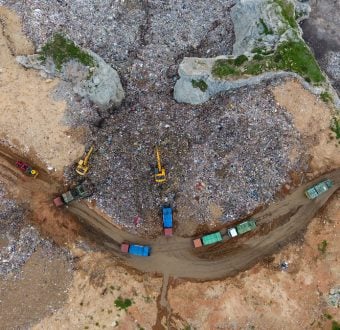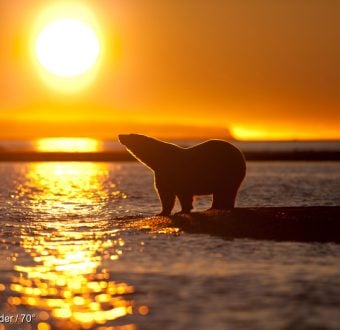Four years of Donald Trump has meant four years of spewing more and more carbon pollution into an already overheated planet. Climate change hasn’t waited. To date, the hottest years globally have all occurred since 1998, with eight of the top ten being in the last decade. Now, voters could usher in climate solutions for the future like: transitioning to clean energy, passing a Green New Deal, rejoining the world in the Paris Agreement.
Climate voters like you are turning out in record numbers to elect a president who our movement can hold accountable to prevent the worst effects of climate change, as well as deal with the impacts that we’re already feeling. What we don’t need is a leader who prides himself on being in the pocket of Big Oil and who takes meetings with oil and gas CEO’s asking for bailouts while denying relief for suffering communities during the COVID crisis.
Protecting communities from the impacts of the fossil fuel-driven climate crisis requires steady leadership, a belief in science, and empathy for the people who are being affected. (What it doesn’t involve is bailing out polluters instead of people or off-the-wall ideas like “sweeping forests”). We can’t wait a minute longer to tackle the root cause of the climate crisis. We can’t wait for protection for our friends and neighbors. And today’s the day to get your ballot in. Make sure you (and your friends and family) are set to vote climate leaders into office before the polls close tonight.
Here’s what’s at stake on your ballot
Fires
Across the west coast, fires in California, Oregon, and Washington have added up to the worst fire season on record. In California this year alone, wildfires have burned more than 4 million acres, including four of the five largest wildfires in the state’s recorded history. In Oregon, twice as many acres burned across the state in just 3 days than in any previous year in the last decade. Meanwhile, millions have spent weeks suffering from dangerous, record-shattering air pollution from the smoke, while hundreds of thousands have had to cobble together an evacuation plan during a pandemic. And none of this is a coincidence. This climate crisis is fueling these fires, contributing to larger and faster fires and a longer fire season, worsened by record-breaking heatwaves and droughts.
Hurricanes
Wildfires aren’t the only thing made worse by the continued burning of fossil fuels. The climate crisis is supercharging tropical storms. Eleven storms have already hit the US this year, Hurricane Zeta just days ago, for the first time in over a century. In August, Hurricane Laura struck in the heart of the Gulf Coast oil and gas industry, with hundreds of refineries and petrochemical facilities forced to emit millions of pounds of toxic pollution prior to evacuation.
Drought
On top of wildfires, western states are now facing a climate-driven megadrought that could be the worst in 1,200 years. California saw the hottest temperatures on record in September and the hottest temperature on earth ever recorded (in Death Valley) in August. This drought sets the stage for more catastrophic wildfires, and further strains water supplies for the western region.
It’s moments of crisis — whether a pandemic, a hurricane, a record-breaking wildfire season, or whatever 2021 has in store for us — that reveal our humanity. Will we allow the handling of these crises to be dictated by polluters, billionaires, and corrupt politicians, or will we the people demand a more just, compassionate, and science-based response to the crises we face? We don’t need more handouts to fossil fuel companies or cruise ships, we need leadership that focuses on protecting people. To that end, we need to elect lawmakers who can be worked with and pressured to do the right thing, instead of stonewalling, ignorance, and destruction.
That’s why we need progressive leaders up and down the ballot — from your neighborhood to the White House. After watching the Senate spend months holding up the HEROES Act, which would provide crucial COVID relief, it’s clear that our current politicians are not up to the task. Our response to every heartbreaking disaster, fire, storm, pandemic, or other consequence of the way the planet has been treated is on the ballot right now.
With higher numbers of absentee ballots this year, it may take more time to count all the votes and we may not know the final election results on election night this year. But that’s OK. Counting every vote is more important than speedy election results!
We are voting in record numbers, and together we will swear in a government elected by and for us.
As the deadline for voting approaches, we’re pulling out all the stops to make sure that you, your friends, family, neighbors, and every environmental voter has their voice heard before the polls close. Our “What’s at Stake” series highlights a key issue that’s on the ballot. If you haven’t voted yet, now is the time. If people in your circle are on the fence, please share this post or have a conversation with them today.






